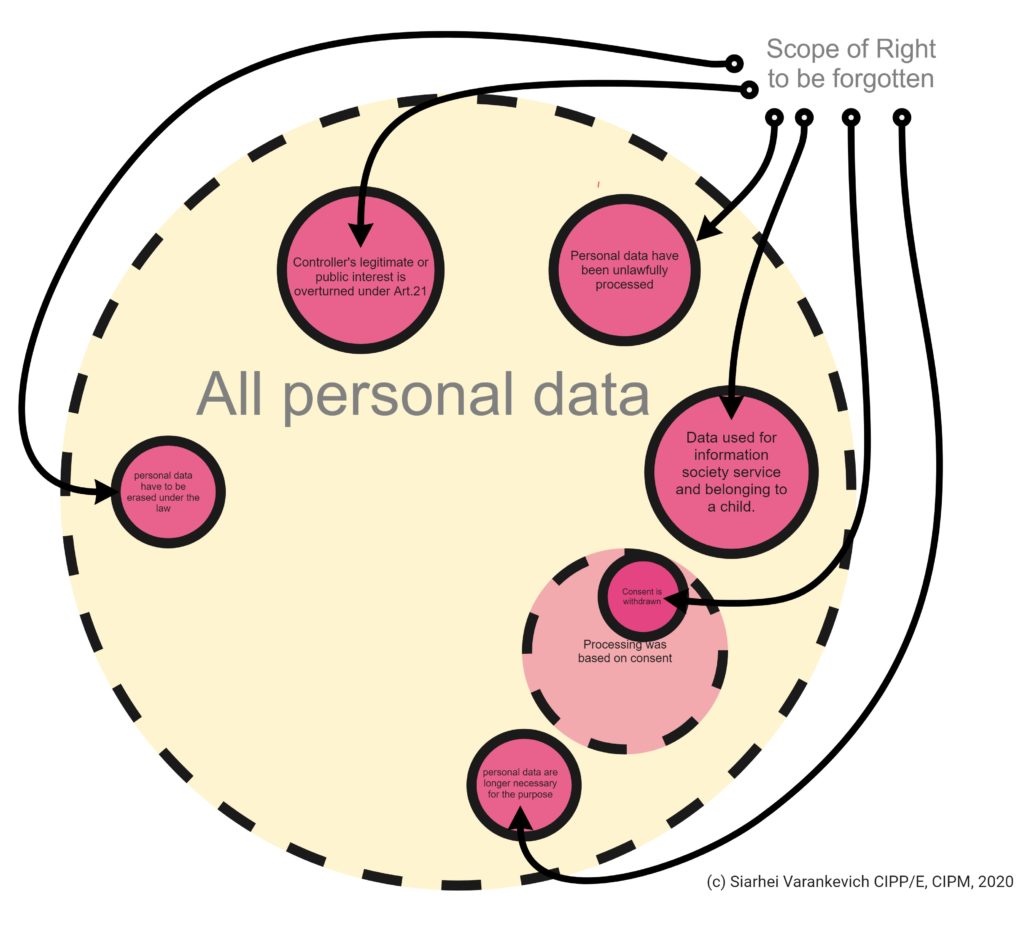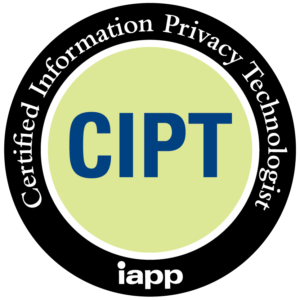






1. The data subject shall have the right to obtain from the controller the erasure of personal data concerning him or her without undue delay and the controller shall have the obligation to erase personal data without undue delay where one of the following grounds applies:







(a) the personal data are no longer necessary in relation to the purposes for which they were collected or otherwise processed;
(e) the personal data have to be erased for compliance with a legal obligation in Union or Member State law to which the controller is subject;
2. Where the controller has made the personal data public and is obliged pursuant to paragraph 1 to erase the personal data, the controller, taking account of available technology and the cost of implementation, shall take reasonable steps, including technical measures, to inform controllers which are processing the personal data that the data subject has requested the erasure by such controllers of any links to, or copy or replication of, those personal data.
ISO/IEC 27701, adopted in 2019, added additional ISO/IEC 27002 guidance for PII processors.
Here is the relevant paragraph to article 17(2) GDPR:
8.3.1 Obligations to PII principals
Control
The organization should provide the customer with the means to comply with its obligations related to PII principals.
Implementation guidance
A PII controller’s obligations can be defined by legislation, by regulation and/or by contract.
[…]
Sign in
to read the full text
ISO/IEC 27701, adopted in 2019, added additional ISO/IEC 27002 guidance for PII controllers.
Here is the relevant paragraph to article 17(3) GDPR:
7.2.2 Identify lawful basis
Control
The organization should determine, document and comply with the relevant lawful basis for the processing of PII for the identified purposes.
Implementation guidance
Some jurisdictions require the organization to be able to demonstrate that the lawfulness of processing was duly established before the processing.
[…]
Sign in
to read the full text
(b) for compliance with a legal obligation which requires processing by Union or Member State law to which the controller is subject or for the performance of a task carried out in the public interest or in the exercise of official authority vested in the controller;
(d) for archiving purposes in the public interest, scientific or historical research purposes or statistical purposes in accordance with Article 89(1) in so far as the right referred to in paragraph 1 is likely to render impossible or seriously impair the achievement of the objectives of that processing; or
The latest consolidated version of the Regulation with corrections by Corrigendum, OJ L 127, 23.5.2018, p. 2 ((EU) 2016/679). Source: EUR-lex.
The so-called “right to be forgotten” was hailed as a breakthrough with the adoption of the General Data Protection Regulation, even though it existed in a limited form before. Article 17 provides for a broader “right to erasure”, to take into account the exact wording of the provision. European Union residents have a right to ask for the deletion of their personal data, and the organization that holds the data has a corresponding obligation to erase them “without undue delay” under a certain number of circumstances.
[…]
Sign in
to read the full text
Concern: Request to erase my personal data
Dear Madam, Dear Sir,
You have data concerning me that I am asking you to delete…
[…]
Sign in
to read the full text
ISO/IEC 27701, adopted in 2019, added additional ISO/IEC 27002 guidance for PII controllers.
Here is the relevant paragraph to article 17 GDPR:
7.3.6 Access, correction and/or erasure
Control
The organization should implement policies, procedures and/or mechanisms to meet their obligations to PII principals to access, correct and/or erase their PII.
Implementation guidance
The organization should implement policies, procedures and/or mechanisms for enabling PII principals to obtain access to, correct and erase of their PII, if requested and without undue delay.
[…]
Sign in
to read the full text
(65) A data subject should have the right to have personal data concerning him or her rectified and a ‘right to be forgotten’ where the retention of such data infringes this Regulation or Union or Member State law to which the controller is subject. In particular, a data subject should have the right to have his or her personal data erased and no longer processed where the personal data are no longer necessary in relation to the purposes for which they are collected or otherwise processed, where a data subject has withdrawn his or her consent or objects to the processing of personal data concerning him or her, or where the processing of his or her personal data does not otherwise comply with this Regulation. That right is relevant in particular where the data subject has given his or her consent as a child and is not fully aware of the risks involved by the processing, and later wants to remove such personal data, especially on the internet. The data subject should be able to exercise that right notwithstanding the fact that he or she is no longer a child. However, the further retention of the personal data should be lawful where it is necessary, for exercising the right of freedom of expression and information, for compliance with a legal obligation, for the performance of a task carried out in the public interest or in the exercise of official authority vested in the controller, on the grounds of public interest in the area of public health, for archiving purposes in the public interest, scientific or historical research purposes or statistical purposes, or for the establishment, exercise or defence of legal claims.
(66) To strengthen the right to be forgotten in the online environment, the right to erasure should also be extended in such a way that a controller who has made the personal data public should be obliged to inform the controllers which are processing such personal data to erase any links to, or copies or replications of those personal data. In doing so, that controller should take reasonable steps, taking into account available technology and the means available to the controller, including technical measures, to inform the controllers which are processing the personal data of the data subject's request.
Article 29 Working Party, Guidelines on the Implementation of the Court of Justice of the European Union Judgment on Google Spain Inc. v. Agencia Española de protección de datos (AEPD) and Mario Costeja González C-131/12 (2014).
EDPB, Guidelines 5/2019 on the Criteria of the Right to be Forgotten in the Search Engines Cases under the GDPR (part 1) (2019).
EDPB, Guidelines 02/2021 on Virtual Voice Assistants (2021).
CJEU, Google Spain SL/Agencia española de protección de datos, C-131/12 (2014).
CJEU, Camera di Commercio, Industria, Artigianato e Agricoltura di Lecce/Manni, C-398/15 (2019).
CJEU, GC e.a./Commission nationale de l’informatique et des libertés, C-136/17 (2019).
CJEU, Google LLC/Commission nationale de l’informatique et des libertés, C-507/17 (2019).